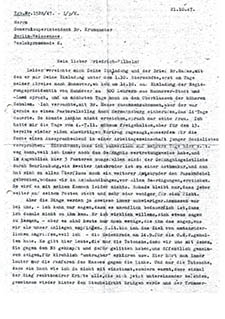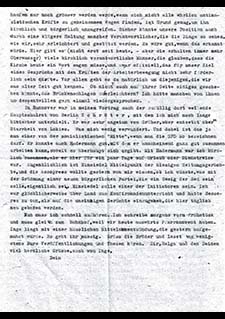Hostile Treatment
His work on the National Committee for “Free Germany” and his attempt after 1945 to build bridges between East and West as well as between the church and the labor movements brought Johannes Schröder hostile treatment in the course of the Cold War.
His fellow clergy attacked him in October of 1947 because he had given a speech on the “Day of Remembrance for the Victims of Fascism”, the second Sunday in September. The Berlin city council had resolved in 1945 to observe such a day of remembrance. At first, it was largely organized to be nonpartisan, nondenominational and pan-German. From 1948 onward, the idea split into in East and West however in the course of the Cold War. The “Association of Victims of Persecution by the Nazi Regime” (VVN) sponsored the day of remembrance as of 1947.
Schröder experienced hostile treatment well into the 1960s because of his work on the National Committee for “Free Germany”.
In his book “Verräter. Das Nationalkommittee for ‘Freies Deutschland – Keimzelle der sogenannten DDR” (Traitors. The National Committee for Free Germany: Nucleus of the So-called GDR), Peter Strassner wrote, thus the impartial reader will have to concur with the author’s conclusion that the Protestant clergyman Schröder and all of the other ministers of the “Council” fell victim to a perfidious deception. Yet, a good measure of weakness of character and naiveté, of dubiousness and irony at least remains.
Source / title
- © Christiane Godt-Schröder


